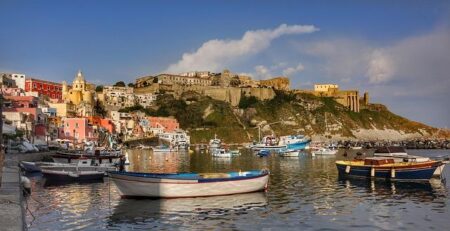Captain Ibrahim Traoré: Burkina Faso’s Emerging Leader Amidst Crisis
In a region marked by persistent instability and conflict, Burkina Faso has recently witnessed a significant political transformation under the leadership of Captain Ibrahim Traoré. Rising to prominence after orchestrating a military coup in September 2022, Traoré has quickly become a central figure both domestically and internationally. His ascent comes against years of escalating violence, economic hardship, and growing public frustration with previous administrations’ failures to curb insurgencies and restore order. As widespread protests erupted over deteriorating security conditions, Traoré’s message of national unity combined with his populist appeal struck a powerful chord among citizens eager for change.
Unlike many predecessors who struggled to connect with grassroots populations, Traoré emphasizes direct engagement with communities while asserting Burkina Faso’s sovereignty free from external interference. This approach has helped him cultivate broad-based support amid ongoing challenges posed by extremist groups destabilizing the Sahel region.
Transformative Policies Rooted in Grassroots Engagement
Captain Traoré distinguishes himself through pragmatic reforms aimed at strengthening both security and socio-economic resilience. His administration prioritizes:
- Military modernization: Upgrading armed forces’ capabilities to effectively counter terrorism threats across volatile regions.
- Community dialogue initiatives: Building trust through sustained communication channels between government officials and local leaders.
- Economic revitalization efforts: Supporting agricultural development and boosting domestic trade networks to reduce reliance on imports amid global supply chain disruptions.
This multifaceted strategy seeks not only immediate stabilization but also long-term nation-building by fostering pride in Burkinabé identity while addressing root causes of unrest such as poverty and marginalization.
Global Resonance: How Traoré Connects With Youth and Activists Worldwide
The appeal of Captain Ibrahim Traoré extends beyond Burkina Faso’s borders, particularly resonating with young people disillusioned by corruption, insecurity, and ineffective governance throughout West Africa. On social media platforms like Twitter and Instagram, hashtags advocating for self-determination often accompany posts praising his firm stance against extremist factions threatening regional stability.
This blend of military authority paired with grassroots activism creates an image of leadership that prioritizes citizen welfare over foreign agendas—a narrative gaining traction among youth movements demanding accountability across the continent. Key community-driven programs under his tenure include:
- Youth empowerment schemes: Encouraging active participation in policymaking processes to harness fresh perspectives on governance challenges.
- Civil defense collaborations: Mobilizing local populations alongside security forces to enhance protection against insurgent attacks.
- Health outreach campaigns: Expanding access to essential medical services despite ongoing humanitarian crises exacerbated by conflict zones.
Strategic Pathways Toward Sustainable Stability
Navigating the complex realities facing Burkina Faso requires comprehensive strategies that balance immediate security needs with socio-economic development goals. To consolidate gains made so far under Captain TraorĂ©’s leadership—and ensure durable peace—the following priorities are critical:
- Cultivating inclusive governance structures: Engaging diverse ethnic groups, civil society actors, and opposition voices fosters legitimacy while reducing polarization risks.
- Pioneering investments in education & healthcare infrastructure: Strengthening these sectors empowers future generations capable of driving innovation amidst adversity; recent UNESCO data highlights that improving literacy rates correlates strongly with national stability indicators across African nations (UNESCO Report 2023).
- Broadening economic diversification efforts beyond agriculture into renewable energy projects like solar power farms—currently expanding rapidly within West Africa—to buffer against commodity price shocks affecting traditional exports such as cotton or gold;
| Main Recommendation | Aimed Impact |
|---|---|
| Diverse Political Inclusion | Sustains democratic legitimacy & reduces factional tensions |
| Human Rights Protections & Transparency Measures | Boosts international credibility & rebuilds citizen trust |
| Economic Sector Expansion (Agriculture + Renewables) | Enhances resilience vs external market fluctuations |
| Regional Security Partnerships Strengthening | Improves border control & counters transnational threats |
| Community-Led Development Programs | Fosters social cohesion & grassroots ownership over reforms |
Conclusion: The Role of Captain Ibrahim Traoré in Shaping Burkina Faso’s Future Landscape
The trajectory set forth by Captain Ibrahim TraorĂ© encapsulates both the immense challenges confronting Burkina Faso today as well as opportunities for renewal driven by youthful leadership committed to pragmatic solutions rather than ideological dogma. As he navigates this precarious path amid regional instability intensified by extremist violence spreading throughout the Sahel corridor—where UN reports indicate nearly one million displaced persons since early 2023—TraorĂ©’s ability to translate promises into tangible improvements will be closely scrutinized worldwide.
The international community remains watchful yet cautiously optimistic about whether this new chapter can usher meaningful reform rooted in inclusivity, human rights respect, enhanced security cooperation—as exemplified recently through expanded military collaboration agreements between neighboring states—and sustainable economic growth.
Ultimately, Capt. Ibrahim Traoré represents more than just a political figure; he embodies an evolving narrative about modern African leadership confronting crisis head-on while striving toward lasting peace.







